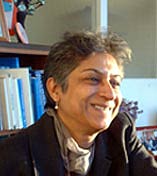 The following is the statement delivered May 12 by the Special Rapporteur on freedom of religion or belief of the Commission on Human Rights, Asma Jahangir, at a news briefing in Colombo following her 2 to 12 May visit to Sri Lanka:
The following is the statement delivered May 12 by the Special Rapporteur on freedom of religion or belief of the Commission on Human Rights, Asma Jahangir, at a news briefing in Colombo following her 2 to 12 May visit to Sri Lanka:
"First of all, I would like to introduce my responsibility here as Special Rapporteur on freedom of religion or belief. I serve in this capacity as an independent expert, distinct from any United Nations agency, and report to the United Nations Commission on Human Rights on the worldwide situation of freedom of religion or belief. My methods of work include visits to countries of concern for the mandate. These visits are not limited to countries which have a weak record in terms of freedom of religion or belief but include countries where emerging issues may threaten a satisfactory level of religious tolerance.
A Special Rapporteur visits countries at the invitation of the Governments concerned and I take this opportunity to express my gratitude to the Government of Sri Lanka for its excellent cooperation during the entire duration of the mission.
I am also aware that I have come to Sri Lanka shortly after the tragic event that have affected your country with the Tsunami. The resilience of Sri Lankans in dealing with their trauma and sufferings is in this regard particularly remarkable.
During my stay in the country, in addition to Colombo, I have traveled to different locations, including Homagama, Kandy, Batticaloa, Ampara, Jaffna and Killinochi. I have met with a number of Government officials, including the Minister of Foreign Affairs, the Minister of Justice, the Minister of Constitutional Affairs and the Ministers responsible for the different religious communities present in the country. I have also met with representatives of the different political parties as well as with the leader of the opposition. Meetings have been held with representatives of the Buddhist community, including the Most Venerable Udagama Sri Buddharakhitta, representatives of the Hindu, Muslim and Christian communities as well as of smaller religious groups. In Killinochi, I met with representatives of the LTTE. Finally and most importantly, I met with a number of representatives of the civil society, concerned Sri Lankans and members of non-governmental organizations (NGOs).
The report on my visit to Sri Lanka will be submitted to the Commission on Human Rights after my visit and will include conclusions and recommendations to the Government as well as to the international community. At this stage I am therefore only in a position to share with you some of my preliminary observations.
During my visit I have noticed that there is a high degree of transparency in the Sri Lankan society, including amongst the government functionaries and the political leadership that I met. They were open to discussion and keen to preserve their culture of religious tolerance. However, I have noticed that certain issues related to the right to freedom of religion are not appropriately addressed. In this regard, I am concerned that inaction or lack of proper attention could lead to numerous misunderstandings and promote a climate of religious intolerance.
Over the last few years, I have received a number of reports of violent acts of religious intolerance such as the destruction or burning of places of worship. These have been perpetrated against different religious communities and have been widely confirmed by interlocutors from all sides. I have noted that in most cases the perpetrators have not been brought to justice. Moreover, in many cases, the police and other competent authorities appear to have been reluctant to take appropriate actions despite the identification of perpetrators. The inaction of the Government can only embolden the forces of intolerance and paralyzes rational voices. Inability to take appropriate and timely measures in arresting the rising trends of religious intolerance could make political as well as religious leaders a hostage to the very few who take extreme positions. I consider that the reported attacks on places of worship, mostly on churches, constitute clear violations of the right to freedom of religion or belief and the Government has an obligation to prosecute their perpetrators and to compensate the victims.
During my visit, I have received numerous allegations of organized groups involving in improper or unethical practices to induce individuals to change their religion. While it was not claimed that anyone was coerced to or forced to change his or her religion in a manner that is clearly incompatible with the right to freedom of religion or belief, many of these allegations have remained vague as to the identity or circumstances of the so-called victims. Despite several requests and efforts in this direction, I have been unable to hear direct testimonies of such cases. Nevertheless, second hand accounts by credible sources indicate that conversions through improper means have indeed occurred and certainly raise a concern.
There were a few reports of incidents of deliberate 'hurt' to religious feelings and of defiling of religious symbols. These are of concern to my mandate and I will be following the outcome of the investigations. I believe that the existing legal provisions in the Penal Code of Sri Lanka are sufficient in dealing with the nature of offences reported to me and urge that these be effectively implemented.
Moreover, in the same context, there have also been allegations that faith based organizations that have brought humanitarian assistance to Sri Lanka for the victims of Tsunami, have adopted certain methods exploiting the vulnerability of the population. I have also not been able to confirm these allegations by precise and individual cases but a sufficient number of allegations are confirmed by a number of sources.
I would therefore call on those Sri Lankans and foreigners that are involved in humanitarian and development efforts to respect the guiding principles on humanitarian law. The United Nations General Assembly Resolution 46/182 urges NGOs, religious and missionary organizations to provide aid without espousing any particular religious opinion. A large number of humanitarian workers and organizations have scrupulously observed this principle. They have generously donated and tirelessly worked for the victims of Tsunami but regrettably a few have not strictly observed these guidelines. These are regrettable practices but do not constitute a criminal offence or a clear violation of the right to freedom of religion, as long as such conversions are not carried out under force, pressure or other coercive methods. Nevertheless, they do raise anxiety.
In response to these religious tensions, some initiatives have led to the introduction of two draft laws that would criminalize acts of 'unethical' conversions. Contrary to what has been often claimed, the content of these drafts as well as the implementation of their provisions do raise concerns under human rights law, including the right to freedom of religion or belief.
In this respect, I note with some satisfaction that there are in Sri Lanka independent mechanisms and pluralistic as well as democratic traditions. As such Sri Lankans are adequately experienced to resolve emerging religious tensions. The Supreme Court of Sri Lanka in its determination has declared portions of one of these draft Bills as unconstitutional. In my opinion, the provisions of both draft Bills could result in the persecution of religious minorities rather than the protection and promotion of religious tolerance. The enactment of these Bills could seriously undermine the culture of religious tolerance enjoyed for decades in this country. It could impair the religious harmony that this country can rightly be proud of sustaining even through the difficult period of a civil war.
More essentially, while I could be apprehensive by the relative determination of a few, I have been encouraged by the fact that the important majority of my interlocutors have expressed their willingness to resolve this question through appropriate means".
For use of information media; not an official record
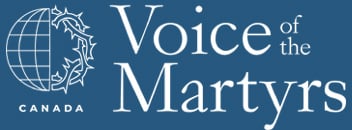
 Population
Population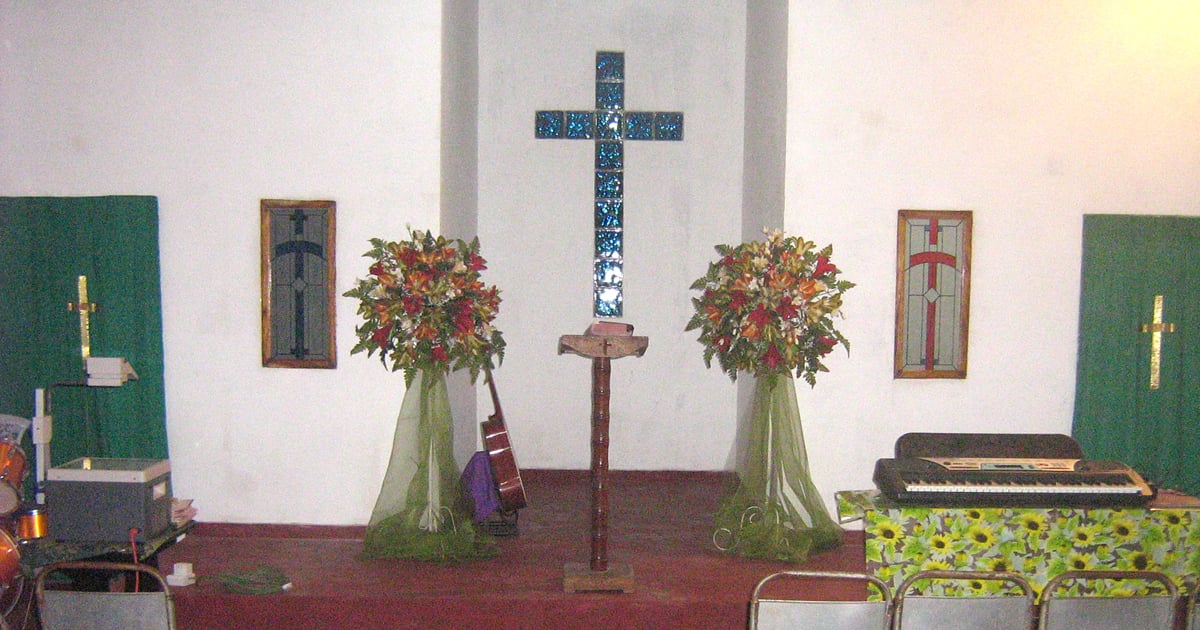
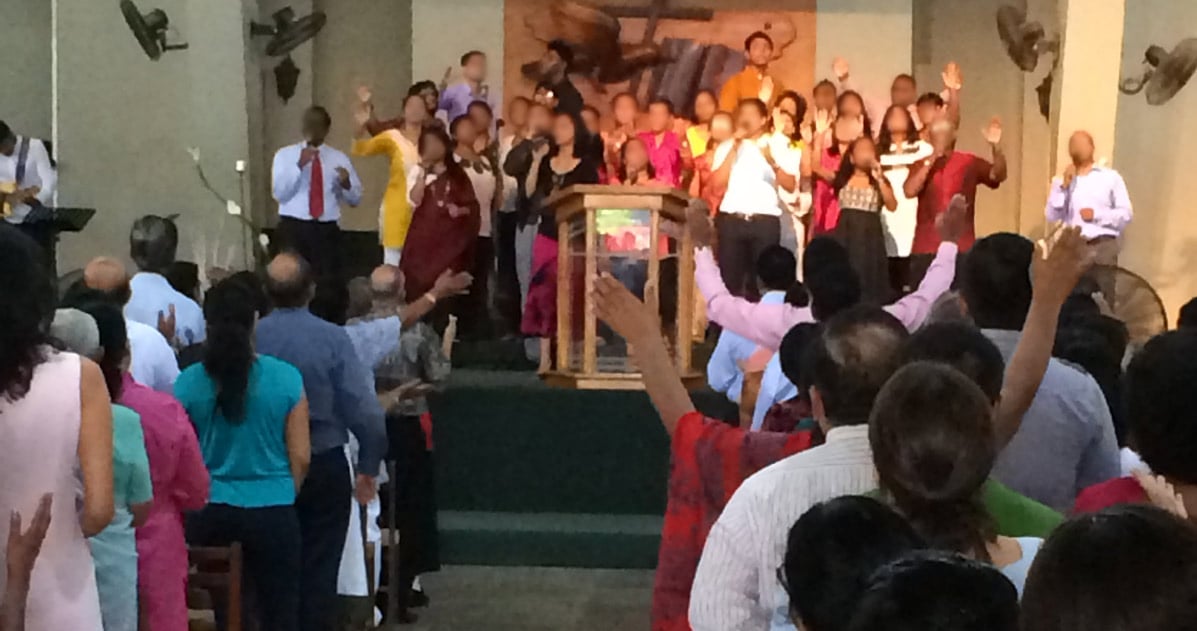
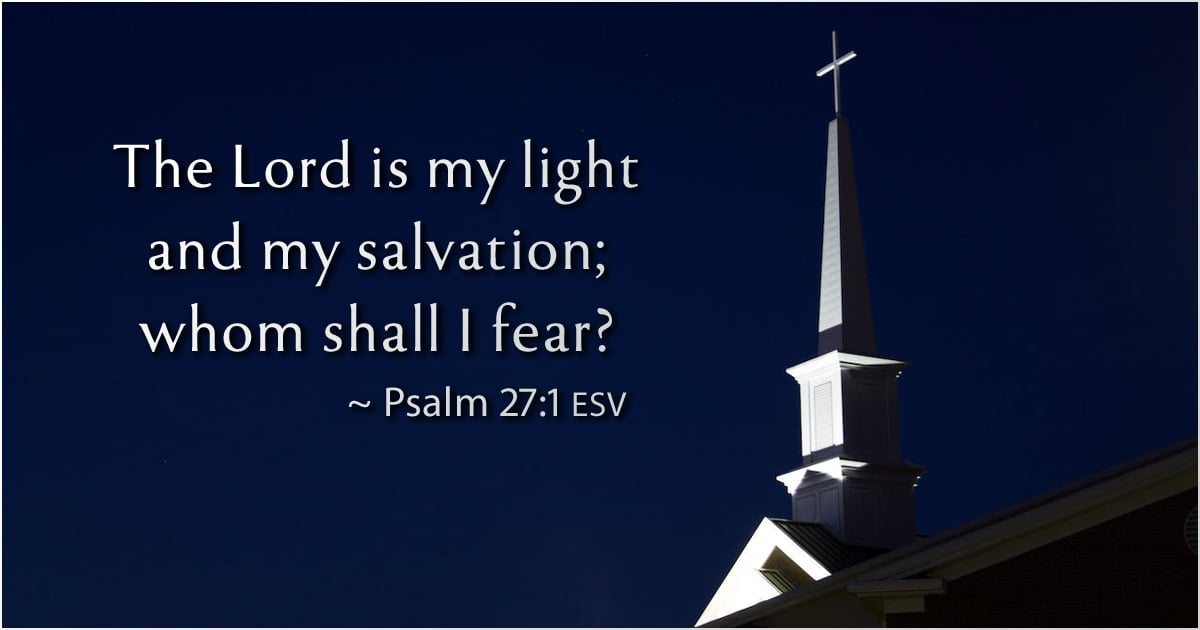
![A church in Sri Lanka[br]Photo: VOMC A large, white church with a cross atop of the steeple.](/images/countries/srilanka/lk-church-vomc-lg.jpg)
